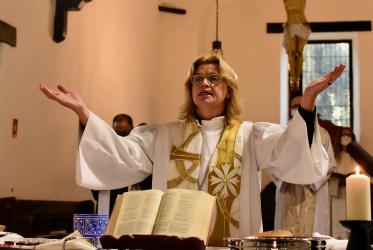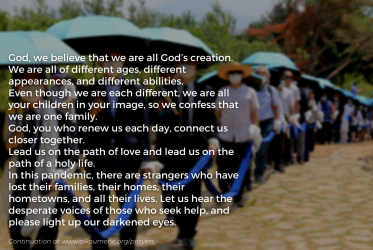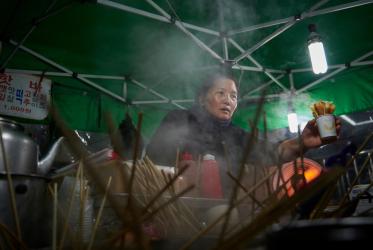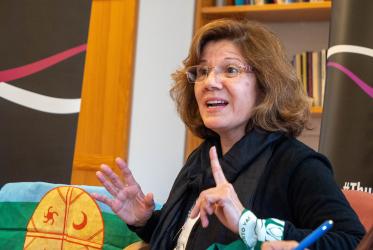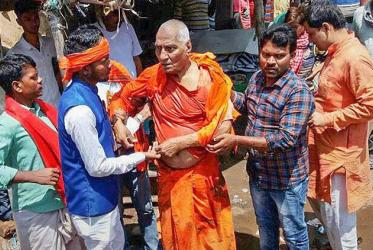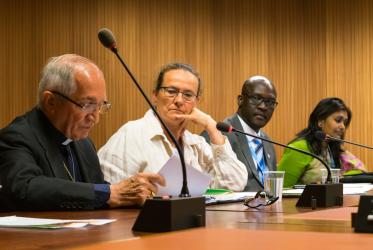Displaying 1 - 20 of 26
In Chile, “Churches’ ministry of reconciliation is key”
29 November 2022
“Women must keep resisting,” urges Chilean theologian
10 March 2020
WCC organises event on “The Human Rights Situation in the Philippines”
18 September 2019
WCC condemns massacre of farmers in Philippines
12 April 2019
Unifying faiths in peace and harmony through dialogue
10 April 2018
Religious leaders urge a ban on fully autonomous weapons
02 April 2015

